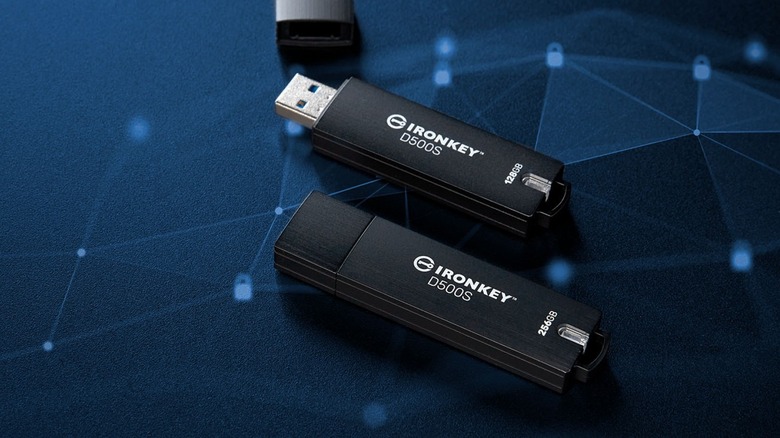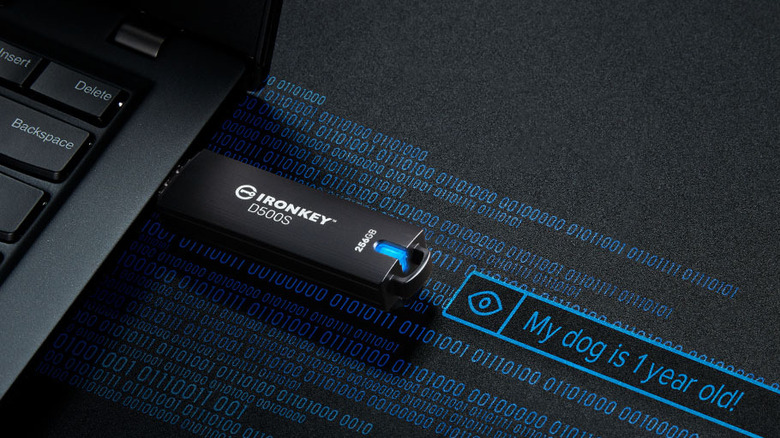What Is An IronKey And How Is It Different From Regular Flash Drives?
We may receive a commission on purchases made from links.
We live in an era of online cloud storage, where all your data is available everywhere and from any device. This makes the act of owning physical storage media less of a pressing concern than it once was and more of a throwaway gadget with which you can do some cool things. And yet, the disappearance of movies and shows from streaming services, as well as constant changes to social media and other online repositories, have made physical storage more important than ever. We've all used a flash drive at one point, and they've evolved, becoming bigger and more reliable each year.
When you look at external storage online, you might come across the IronKey series, a rather flashy and striking name for a simple flash drive. What makes these so different and worth relatively high prices compared to regular flash drives? More importantly, is it worth it? Here's your guide to the IronKey.
So, what is an IronKey?
The IronKey is a flash drive brand developed in the early 2000s by IronKey, an Internet security and privacy company partially funded by Homeland Security and later acquired by Kingston. These were meant to provide extra security for its target clientele — government, military, and business. Though they work pretty much like any other flash drive, their hardware encryption makes the IronKey unique (and quite expensive).
Though software encryption is easy and safe enough for most of your files, it is not comprehensive nor as strong as hardware encryption, which employs a cryptoprocessor built into the device. In the case of the IronKey, the flash drive employs 256-bit AES hardware-based encryption in XTS mode and FIPS 140-2 Level 3 validation with on-device Cryptochip Encryption Key management. The flash drive detects physical tampering and automatically protects your data once you remove the drive. For added security, you can use a complex password or a passphrase of up to 255 characters long to access the files, and if you fail to provide the correct password ten times, the drive locks down automatically and optionally destroys the files.
So, do you need one? That depends on your use. Spending $77 for an 8GB flash drive may be excessive if you only store school assignments or photos. However, if you have confidential business documents or state secrets, it might be worth paying a little extra to ensure you aren't on the receiving end of a security leak.

